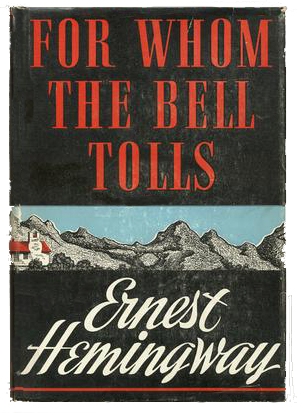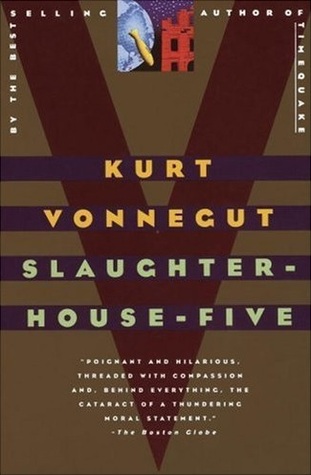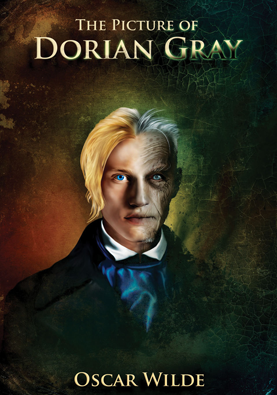Classic literature gets a little bit of a bad rap sometimes. A lot of the books that fall into this category are very long, crafted with intricate prose and sometimes lacking much in the way of action. However, that doesn’t mean that they’re all boring! Some of them have more interesting plots than people might expect, many have fascinating characters, and in the end there are plenty of classics that are quicker and more engaging reads than many believe.
To prove the point, here are 10 classic novels that are a lot of fun to read.
1. 1984
1984 is mildly haunting in its depiction of a dystopian future in which society is rigidly controlled, and citizens are punished even for thinking crimes. It’s not the most cheerful novel, but it’s far from boring. George Orwell had a wonderful gift for infusing very important messages in his work without turning them into boring, overlong tomes that students would one day have to strain to read. It’s not quite as straightforward as Animal Farm, Orwell’s other seminal work, but it’s an easy enough read.

2. For Whom The Bell Tolls
There’s no getting around the fact that Ernest Hemingway is one of the most fascinating authors associated with so-called “classic” literature. While many such figures were either reclusive or attached to a high artistic society in their respective times, Hemingway was a larger-than-life figure. Just this summer, an article popped up out of the blue arguing that Hemingway taught us all how to drink. None of this is to say that his novels are necessarily bursting with adventure or boisterous entertainment, but they’re certainly unique among classics. Hemingway wrote with an unassuming, deliberate style in stark contrast to most writers of his age, and it’s something that a lot of modern readers can appreciate. For Whom The Bell Tolls is the story of a young American swept up in the Spanish Civil War.
3. Don Quixote
Miguel de Cervantes truly achieved something remarkable with this 1605 novel. It’s been referenced in other novels for hundreds of years, and is even still regarded as a humorous book over 400 years after publication. It’s a story about a young man who sets out to bring back the age of chivalry, more or less by mimicking a knight, and ends up on a fool’s journey across Spain. Frankly, this one is a blast if you can get past some old world language.

4. Slaughterhouse-Five
Kurt Vonnegut just may be the most enjoyable author whose work has been included in the literary canon. A satirist with a unique eye for the bizarre and yet a spookily clear view of society and human nature, he continually produced work that was at once hilarious, tragic, and unsettlingly real. This was all highlighted recently, in fact, when a letter from Vonnegut to the future resurfaced. In it, the author talks about environmental issues and even argues for education over pure spending as the foundation for a progressive environmental consciousness. The man simply understood the world. Slaughterhouse-Five is considered the closest thing to an autobiography among his popular works. It’s the story of a young man named Billy Pilgrim who survived the World War II firebombing of Dresden and lived on in the postwar years.
5. Great Expectations
Some might dispute the idea that Great Expectations is an enjoyable read, simply because it’s a long book, dense with detail and description. However, those who give this book a chance often find it fairly charming, as is typical of the work of Charles Dickens. Essentially the tale of an orphan boy off to make the most of his life among a curious cast of characters, it reads almost like a lengthy fairy tale devoid of magical elements.
6. The Three Musketeers
Each of the books on this list is fun in its own way, but not many are adventurous enough to have inspired their own video games! Granted, in this case we’re talking about title that’s part of a collection of slots with pop-culture themes. Still, it speaks to the popularity and adventurous nature of The Three Musketeers that anyone would develop a slot game based on its content when the majority of similar games concern popular films. At any rate, The Three Musketeers is not a full novel’s worth of action and swashbuckling. But it’s still got a little more action than your average classic, and the tense political drama throughout can definitely keep your interest. It follows a young man named D’Artagnan who journeys to Paris to join the elite fighting force of the French musketeers, only to find himself caught up in curious international conflicts.
7. Crime And Punishment
Dostoevsky, like many great Russian authors, requires a little bit of patience. However, while it would be inappropriate to call him the Hemingway of Russia, he does tend to be a little bit simpler and more relatable than, say, Leo Tolstoy. Partially for that reason, this in-depth story of a crime’s effect on a human’s soul is actually quite gripping. There’s definitely something creepy about it as well, but to a lot of modern readers that only makes it more interesting.

8. The Picture Of Dorian Gray
This novel was the subject of a film adaptation as recently as 2009 (though it got mixed reviews), indicating that it’s still quite popular in modern times. Equal parts comedian, philosopher, and playwright, author Oscar Wilde always had a unique and multi-faceted voice. In The Picture Of Dorian Gray, however, that voice may have come out more vibrantly and memorably than in any of Wilde’s other works. It concerns a young man who quite literally sells his soul to the Devil in exchange for eternal youth and beauty. It’s a bold and lively story, and perhaps the most relatable of any of these novels to modern readers.
9. Light In August
Genius though he was, much of William Faulkner’s work is thought to be dry or confusing by all but the most passionate of literary enthusiasts. Indeed, The Sound And The Fury, arguably Faulkner’s most famous work, can read like gibberish at times unless you’re truly delving into a deep study of the text. However, Light In August is a little bit different. Categorized as a Southern gothic novel, it essentially deals with interactions between various characters in a fictional Southern county that Faulkner invented and used many times over. Plot-wise it’s not the most enthralling novel, but the characters and the ways in which they relate to one another make it a special read.
10. Moby Dick
Finally there’s Herman Melville’s Moby Dick, which is one of the longest novels on this list, but also one of the most fun. Filled with characters that could just as easily be part of a present day adventure film as a classic novel, and spanning much of the globe, Moby Dick is a spectacular story. It’s just that simple with this one.